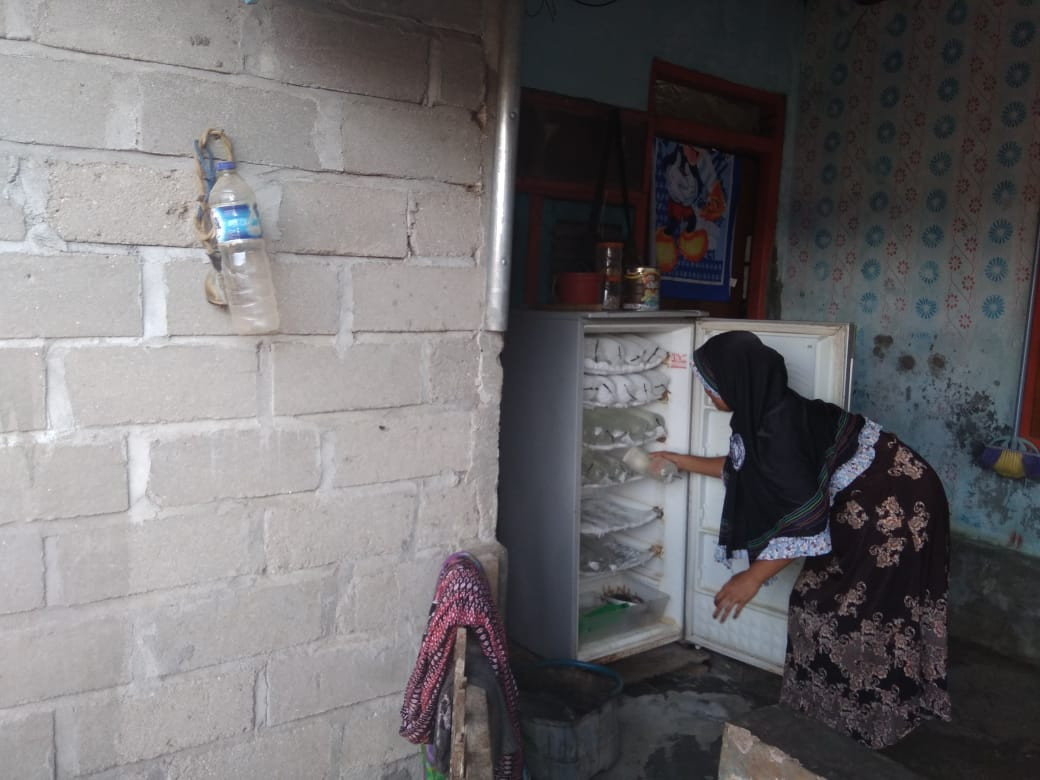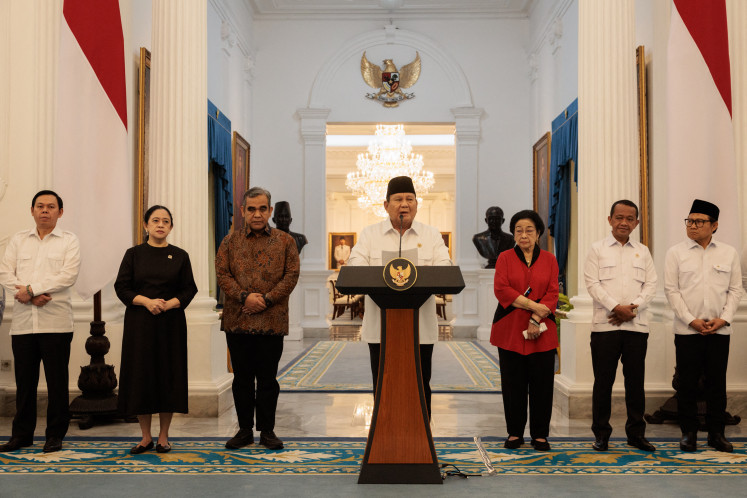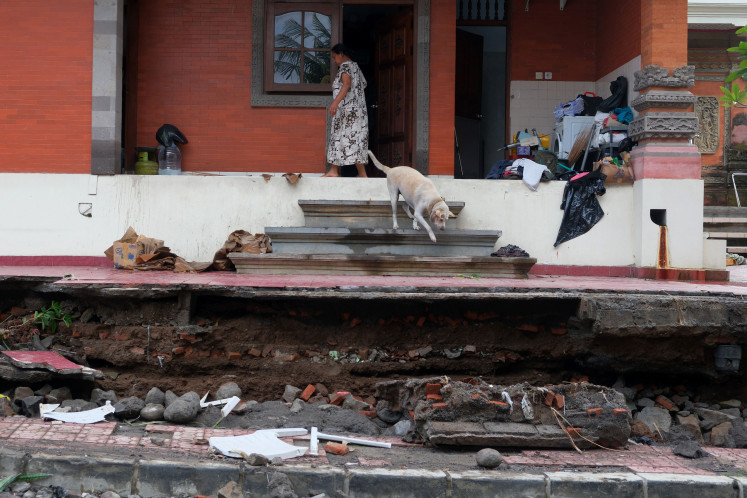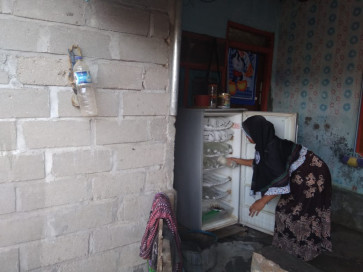Popular Reads
Top Results
Can't find what you're looking for?
View all search resultsPopular Reads
Top Results
Can't find what you're looking for?
View all search resultsAging population needs gender dimension
In the recent Group of 20 Summit in Osaka, Japan, Japanese Finance Minister Taro Aso stated that an aging population was a global risk. The warning deeply resonates here, as Indonesia is on the path to having an aging population.
Change text size
Gift Premium Articles
to Anyone
 In Indonesia, there are much fewer productive-age women in the labor force than men. Recent statistics (Sakernas 2018) show that Indonesia’s labor force is made up of 80 million men and 50 million women. This excludes the 35 million women in their productive age who are not considered to be part of the workforce because they are counted as “housewives”. (JP/Made Anthony Iswara)
In Indonesia, there are much fewer productive-age women in the labor force than men. Recent statistics (Sakernas 2018) show that Indonesia’s labor force is made up of 80 million men and 50 million women. This excludes the 35 million women in their productive age who are not considered to be part of the workforce because they are counted as “housewives”. (JP/Made Anthony Iswara)
I
n the recent Group of 20 Summit in Osaka, Japan, Japanese Finance Minister Taro Aso stated that an aging population was a global risk. Aso was quoted as saying: “If the issue of aging starts to show its impact before you become wealthy, you really won’t be able to take effective measures against it.”
The warning deeply resonates here, as Indonesia is on the path to having an aging population. Yet another aspect of aging that is often overlooked from public discussion is the gender dimension. The gender composition of elderly people in Indonesia shows that there are more women than men facing old age.
Using gender perspective means we must consider how aging affects both sexes differently. For instance, men and women both encounter health risks when they get older, but their physiological and life experience bring different impacts. The World Health Organization says that while women have a longer life expectancy rate, their healthy period is not quite equal to men’s, meaning women are more likely to outlive men but they will live in less healthy conditions during old age.
Furthermore, each gender will face different social risks because although they come from the same socioeconomic group, being born in a patriarchal culture means women face different challenges and receive fewer opportunities over the course of their lives.
In Indonesia, there are much fewer productive-age women in the labor force than men. Recent statistics (Sakernas 2018) show that Indonesia’s labor force is made up of 80 million men and 50 million women. This excludes the 35 million women in their productive age who are not considered to be part of the workforce because they are counted as “housewives”.
Adding to their burden, women’s participation in the labor force must sometimes be interrupted so they can fulfill their reproductive and caregiver role. Further challenged by their lower level of education, women outside the labor force are of a group that is the least prepared for old age because they have no wage and pension funds, after spending most of their lives doing unpaid domestic work. Europe has a social policy that is directed toward preparing women to have greater participation in the labor force and encouraging governments to provide specific pension schemes for women outside the labor force.
What about Indonesia? Social protection programs from the central government for elderly people are still limited to the assistance for the elderly program (ASLUT), conditional cash transfer (PKH) and subsidies (PBI) for the elderly under the National Health Insurance (JKN) program.

















